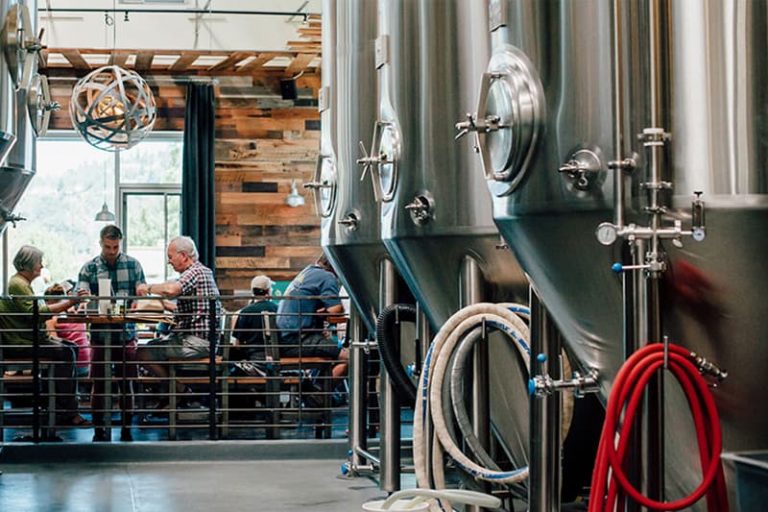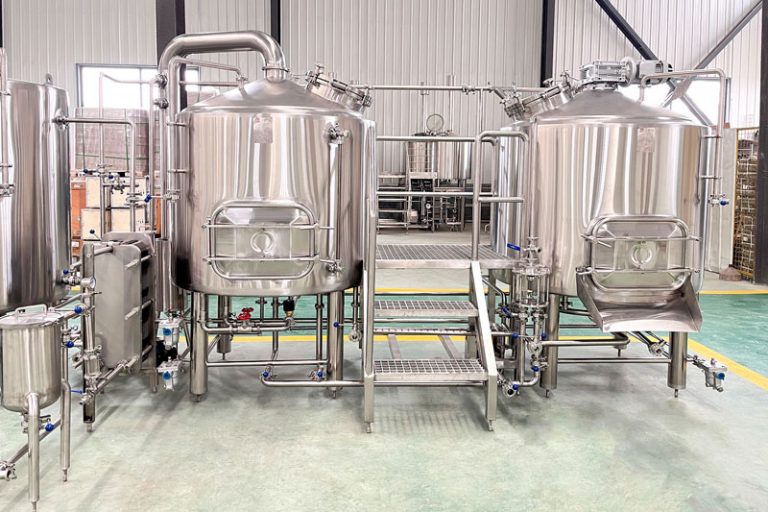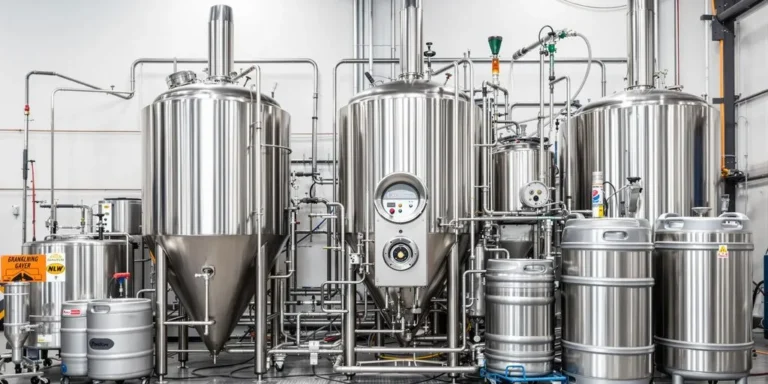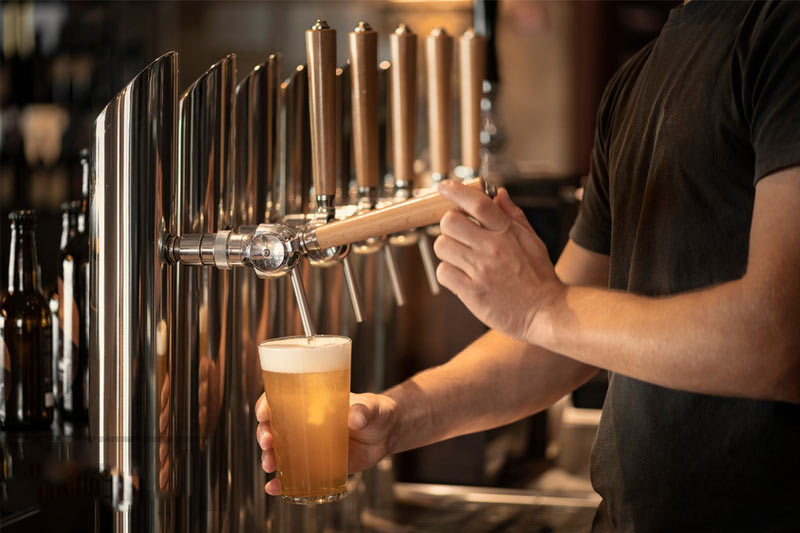As one of the most widely consumed alcoholic beverages in the world, beer brewing technology has evolved into a mature and systematic process. From the initial home brewing to today’s large-scale industrial production, the beer brewing process has developed into a highly mechanized and automated process. In this process, brewing equipment plays a decisive role. Different equipment is responsible for various stages such as raw material processing, mashing, fermentation, filtration, packaging, etc., and some key equipment has a decisive influence on the quality and taste of the final beer. This article will explore the entire process of beer brewing in-depth and analyze which parts of the equipment have the greatest impact on the brewing process.
Table of Contents

Overview of the basic process of beer brewing
Before analyzing the equipment, let’s briefly understand the standard beer brewing process. This process can usually be divided into the following stages:
- Raw material preparation (mainly malt crushing and water treatment)
- Mash
- Filtrationmash
- Boiling and adding hops
- Cooling
- Fermentation
- Maturation and refrigeration
- Filtration and packaging
Beer brewing equipment
Modern breweries are usually equipped with the following main equipment:
- Milling machine
- Mash tun
- Lauter tun
- Kettle / Wort Boiling Vessel
- Whirlpool
- Plate Heat Exchanger
- Fermenter
- Bright Beer Tank
- Filtration equipment (such as diatomaceous earth filter)
- Packing system (canning/bottling line)

Analysis of the equipment parts that have the greatest impact on brewing
Mash Tun
The main function of the mash tun is to mix the crushed malt with hot water so that the amylase breaks down the starch into fermentable sugars at the right temperature. The effect of mash directly affects the final alcohol content and the taste of the beer.
- Whether the mashtemperature is accurately controlled;
- Whether the stirring device is uniform and effective;
- Whether the heating system is efficient;
- Whether the mashtime is properly controlled.
- The wrong temperature or uneven stirring may lead to enzyme inactivation or incomplete mash, affecting the fullness of the beer.
Lauter Tun
The lauter tun is responsible for filtering the mashed malt paste out of the wort, which is a key step in sugar extraction.
- Tun bottom design (false bottom, water outlet trough layout);
- Stirring and drainage balance;
- The uniformity of the spent grains bed.
- If the lauter tun is not drained smoothly, it may lead to a high residual sugar rate in the wort, affecting the yield; and if the filtration is too fast, it may lead to the leaching of impurities, affecting the clarity of the beer.
Kettle Tun
The kettle tun is a key device that affects bitterness and aroma. The main task of the kettle tun is to add hops at high temperatures and remove protein coagulation and odor.
- Isothermal extraction of hops (isomerization of bitter substances);
- Protein coagulation and removal of volatile substances;
- Control of boiling intensity and time.
- The bitterness, aroma, and color of beer are all formed at this stage, so the design of the kettle tun directly affects the flavor balance of the finished beer.
Plate Heat Exchanger
The plate heat exchanger is a bridge connecting heat and cold. The boiled wort needs to be quickly cooled to a suitable temperature for fermentation, otherwise it will affect the yeast activity.
- Is the cooling speed fast enough?
- Is the wort contaminated after cooling?
- Heat recovery efficiency.
- Too slow cooling or unqualified hygiene may cause contamination or abnormal fermentation, affecting the stability and taste of the wine.
Fermenter
After yeast is added to the fermentation tank, sugar is converted into alcohol and carbon dioxide, forming alcohol concentration and complex flavor. Different types of yeast produce different byproducts at different temperatures and pressures, such as esters, alcohols, etc. The design of the fermentation tank directly affects the generation of flavor substances.
- Temperature control system;
- Stirring and ventilation system;
- Tank material and shape;
- Pressure and exhaust control.
Bright Beer Tank
After fermentation, beer needs to be matured at a low temperature to settle the off-flavors and blend the flavors. The beer tank affects the foam stability, taste softness, and consistency of the finished product, and is the last check before the finished product.
- Precise temperature control system;
- Smooth inner surface treatment to reduce residue;
- An air pressure regulation system can be used for carbonization.

A brief analysis of the importance of auxiliary equipment
Although not the main role, the following equipment also supports the overall process:
- Cleaning system (CIP) – prevent pollution;
- Water treatment system – ensure stable water quality;
- Control system (PLC) – automatic operation and data recording;
- Yeast recovery system – saves costs and affects yeast activity.
Conclusion
In the beer brewing process, not all equipment is important, but each has its function and works together. However, from the perspective of decisive influence, the brewhouse equipment, fermentation tank, lauter tank, kettle tank, and plate heat exchanger are the five key components. They play a decisive role in the core indicators of beer such as body, taste, alcohol content, bitterness level, etc. High-quality beer not only relies on high-quality raw materials but also relies on the precise design and operation of these key equipment. In the future, with the advancement of technology, intelligent brewing equipment will make this process more controllable and bring unlimited possibilities for the diversification of beer flavors.


